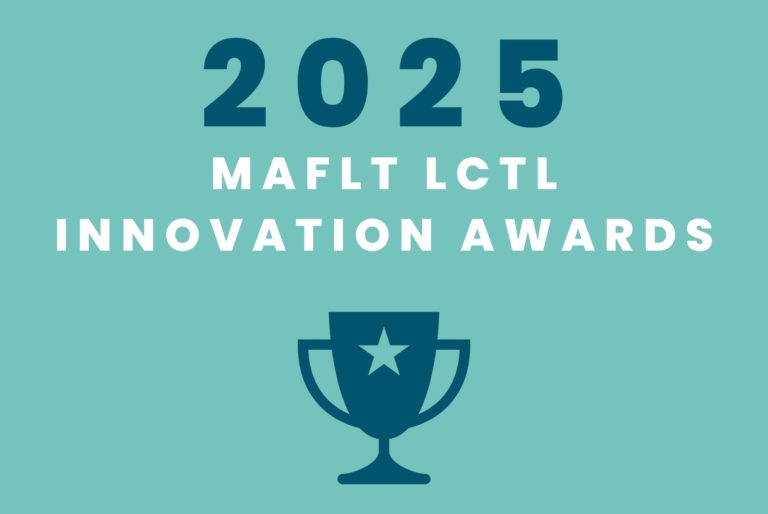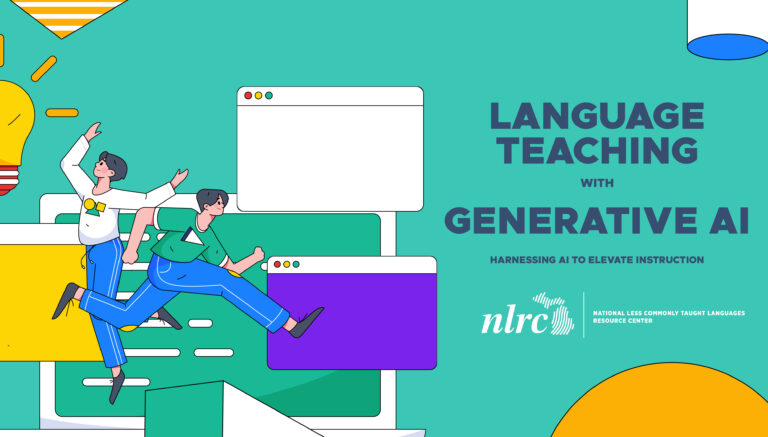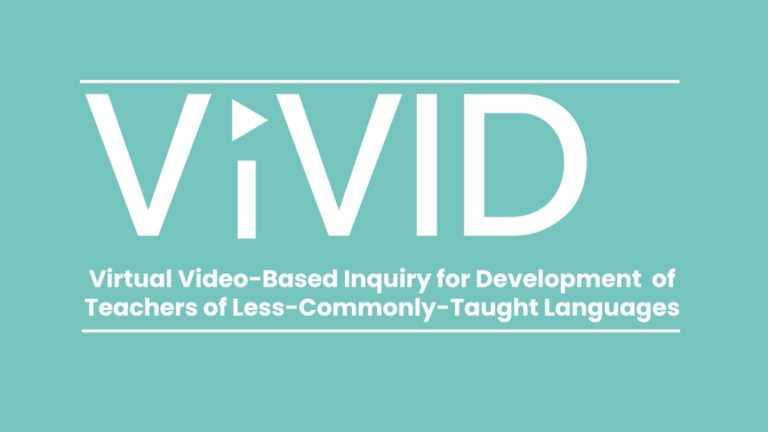Announcing the 2024 MAFLT LCTL Innovation Award Winners!

The NLRC is excited to announce the 2024 MAFLT LCTL Innovation Award winners!
The NLRC gives these awards to recognize outstanding innovations in LCTL instruction. These innovations use technology to creatively and effectively address a real, context-based problem in LCTL education. Award winners use technology to transform traditional teaching practices, prompting learners to explore, create, and develop proficiency with language through accessible technology. These awards are generously sponsored by the Masters in Foreign Language Teaching at Michigan State University.
For the 2024 edition, the two winners are Lisa Gulesserian from Harvard University and Mansi Bajaj from Yale University! Each winner will be awarded a cash prize of $500.
Lisa utilized Wikipedia to enable her Armenian language students to engage in authentic interactions with target language speakers while expanding their writing and reading proficiency. Her students leveraged their Armenian language proficiency and their knowledge of Wikipedia to create authentic informational webpages in line with their own personal interests, and collaborated in the target language with native Armenian reviewers to finalize the artifact. This pedagogical approach is a great example of a transformative use of technology as it utilizes a simple, widespread tool, it enables students to be in control of the creative process to work towards an authentic, purposeful artifact, and it embeds collaboration with the target language community in the process. In the video below, Lisa provides an overview of the project:
Mansi began the ‘Children’s Book Project’ in her heritage Hindi class, where she introduces her students to Hindi children’s books and stories to heighten the awareness of culture and a sense of belonging as well as enhanced student-to-student engagement. Mansi created a free and accessible website where students wrote their own stories, pictures and audiobooks and shared them with their peers. This platform she created brings awareness to cultural topics and diverse interpersonal experiences that each student may have had, all while boosting the students’ Hindi reading and writing skills. In this well-scaffolded innovative approach, technology is used to empower students to be completely in charge of the creative process.
Well done, and congratulations to both Lisa and Mansi!
This year we have two honorable mentions for the LCTL awards: Wenjing Huang (George School, PA) and Borbala Gaspar (University of Arizona).
Borbala Gaspar (who worked with her collaborators Maria Letizia Bellocchio and Giuseppe Cavatorta) created a multimodal text where their Italian students are exposed to and encouraged to analyze and dissect culturally and socially significant authentic materials, so the students are immersed in local and culturally relevant material and language.
Wenjing Huang utilized Google Sites for her Chinese students to create portfolios and reflective presentations for the peers to interact with and give feedback. In this exemplar implementation, students are in charge of their own learning and develop an awareness of the language that they consume.
Congratulations to all the MAFLT LCTL Innovation Award winners and honorable mentions. Keep an eye out for next year’s award call on the NLRC newsletter, Facebook, or Twitter!


